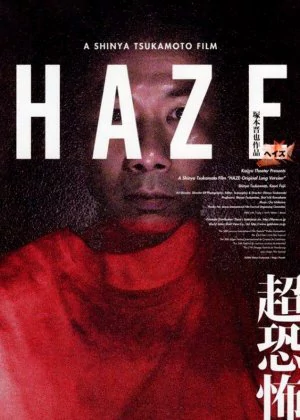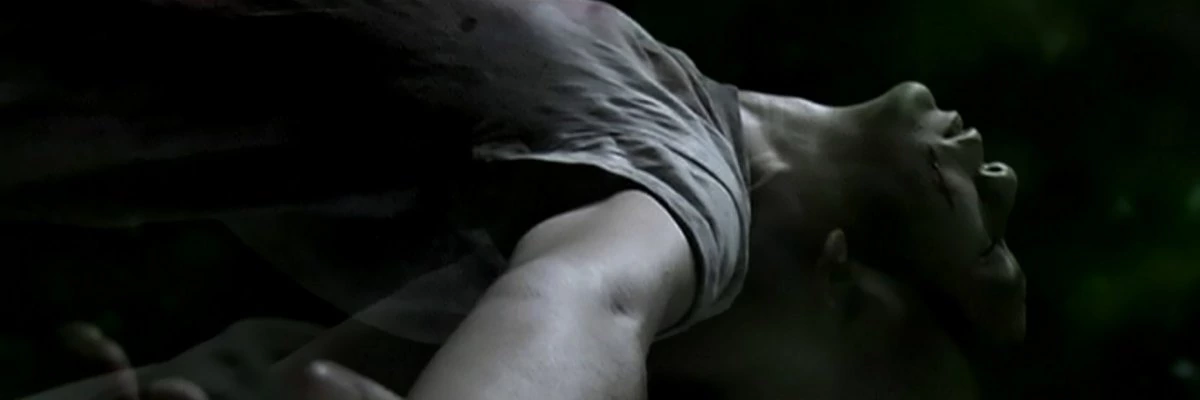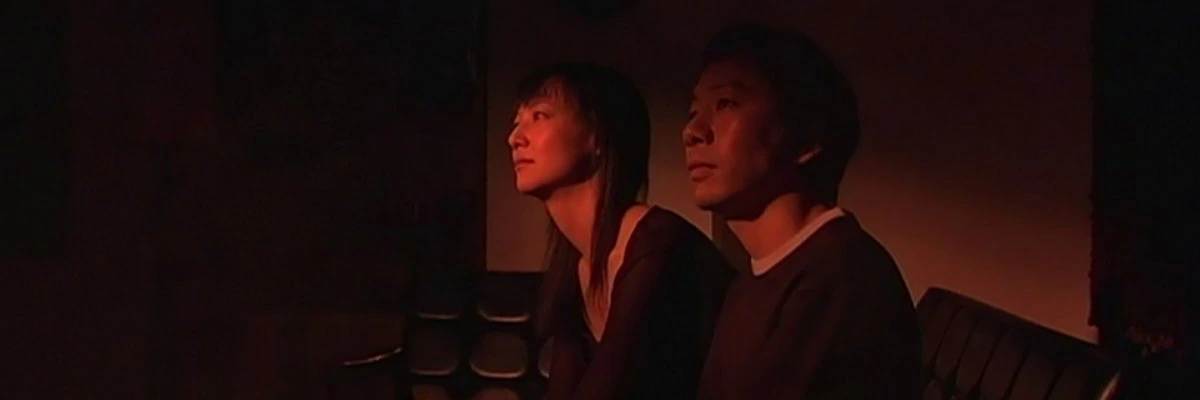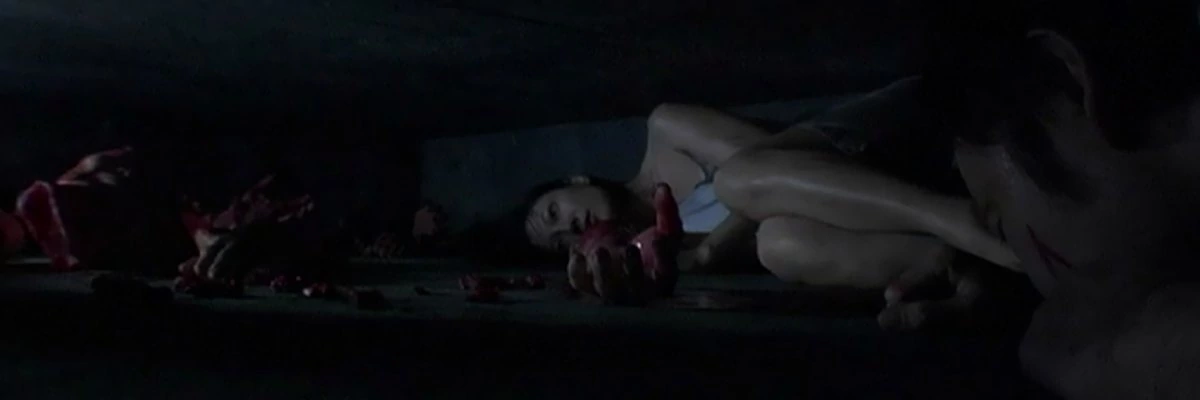Haze

Haze is no doubt a milestone in Shinya Tsukamoto's oeuvre. It marks Tsukamoto's rebirth, his chance to start from scratch, to be small once again, and to redo his career. And all of that thanks to some simple technological advancements. Above all, Haze is a vintage Tsukamoto that transcends its technical background and delivers what people crave when they sit down in front of a Tsukamoto film: a dense, dark and visceral experience.

Tsukamoto started out modestly. In his own apartment, with hardly any money to burn and a group of (professional) friends to help him out he directed his first true feature: Tetsuo. From there on out his projects grew along with him. From Tokyo Fist to Bullet Ballet, Gemini, and eventually Vital, every one of Tsukamoto's new films turned out to be bigger, more ambitious, and more professional-looking, while at the same time losing some of their early guerrilla appeal.
All of that changed when Tsukamoto got hold of a digital camera. He holed up, cast himself as the lead, got some materials to build his own sets, and experimented away, without the pressure of having to return a rented film camera when the money ran out. The result was Haze, the beginning of Tsukamoto's second career which would ultimately lead to more recent films like Nightmare Detective 2, Tetsuo: Bullet Man, and Kotoko.
The short (25-minute) version of Haze was part of the Jeonju Digital (Anthology) Project, but Tsuka also made a longer, stand-alone version. I never really watched the short one, but considering the fact that I wouldn't want to scrap a single scene here, you're definitely better off watching the longer cut. The film starts with Tsukamoto trapped in a maze. Everything is dark, he can't remember how he got there and the entire place is booby-trapped. He makes slow progress through the maze until he bumps into a young lady who has seemingly suffered the same fate as him. Sadly she knows just as much as he does.

The DV look has its pros and cons here. Haze was one of the earlier films using DV, so the quality isn't really up to par with current standards. It works wonders inside the maze, where Tsukamoto keeps the camera close to him, successfully amplifying the claustrophobic effect. There are a few scenes outside the maze that looks rather cheap and ugly, but they are a great minority (and not even present should you watch the shortcut). I do recommend watching Haze in a well-darkened room though, as the overall effect is quite dark indeed.
As for the soundtrack, Chu Ishikawa is up to his usual tricks. Raw, loud, and gritty industrial tracks complement Tsukamoto's manic camera work, while more soothing ambient music enhances the calmer, more atmospheric moments. It's a golden combination for a film like this, though I feel that Ishikawa has made better soundtracks for Tsukamoto. While aptly executed, the music itself sometimes sounds just a little too generic.
Tsukamoto himself takes up the lead and does a pretty good job. He isn't the best actor in the world, but he knows what his films need in terms of acting and he delivers. It's also pretty clear that the "me and my camera" approach allowed him to experiment at his own pace. Kaori Fujii (Tokyo Ken) has the only other sizeable role in this film, she too does a solid job. There are a few other extras, but they're just there to show off their bodies.

While the short version of Haze focuses more on the claustrophobic nature of the setup, the extended cut opens up more of the ideas behind the concept. Without wanting to spoil the "twist" at the end, this film is much less like Cube (or Saw, though I never really understood that connection) than you might expect at first. Instead, Tsukamoto turns Haze into a psychological horror film, using the horror aspect of the film to highlight personal drama and hardship.
Haze is a landmark in Tsukamoto's oeuvre. The possibilities of DV allowed him to go back to his roots. Haze became a very personal film that's drenched in Tsuka's influence at just about every stage in the process, from concept to acting, from filming to actually building the sets himself. It's a film that holds all of Tsukamoto's usual traits while deviating quite strongly from his earlier films. Haze may be a little less refined and accomplished than some of his more famed films, but Tsukamoto did manage to regain that guerrilla charm that made his first films so irresistible.